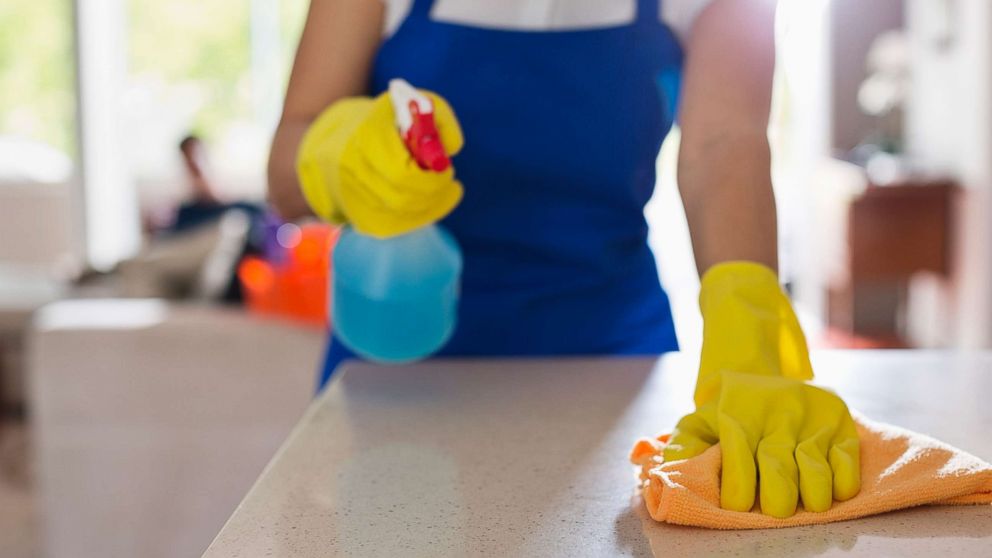Spending money to save time may increase life satisfaction, study says
An international study surveyed more than 6,000 women and men in four countries.

— -- Money can’t buy love, but who says it can’t buy happiness?
Spending money on time-saving services may result in greater life satisfaction, according to a new study published today in the Proceedings of the National Academy of Sciences.
An international team of researchers surveyed more than 6,000 men and women across the United States, Canada, Denmark and the Netherlands about their spending habits.
Those in the study who spent money on services to buy time –- by paying other people to do the cleaning or cooking, for example –- reported greater happiness compared to those who did not, regardless of their level of income.
“What we do with our money matters just as much for happiness as what we earn," lead study author Dr. Ashley Whillans, an assistant professor at the Harvard Business School who performed this research while at the University of British Columbia told ABC News. "All of us make small trade-offs every day of our lives and these trade-offs affect happiness."
"Some of our results are intuitive," she continued. "For example, people should derive some satisfaction from outsourcing things like scrubbing the toilet or cleaning bathrooms. Yet just under half the millionaires we surveyed spent money to outsource disliked tasks."
One factor that could explain why more people who could afford to don’t purchase these time-saving services could be guilt, the study authors suggest. Some people may feel guilty for paying someone to do tasks they simply don’t want to complete themselves.
Another issue is the difficulty of planning for events and time availability in the future, as well as a general reluctance to make time-saving purchases.
"Busy-ness has become a status symbol in North America," Whillans explained. "People want to feel they can manage all components of their lives."
Society in general has moved into a “self-service mode,” according to Dr. Dan Ariely, professor of psychology and behavioral economics at Duke University and a New York Times best-selling author.
"Think about what the Internet has done," Ariely, who was not involved with the study, told ABC News. "The Internet has created self-service in every area, from online banking to booking our own travel arrangements. Maybe we need to ask ourselves whether this is a good thing."
"What this research is suggesting," he continued, "is that maybe moving into a self-service direction seems efficient and satisfying, but it is, in fact, not."
In addition to the first large study, Whillans and her colleagues performed a second, smaller experiment in a group of 60 working Canadian adults, giving them $40 to spend on a time-saving purchase one week and $40 to spend on a material purchase the second week. People who decided to spend money to save time, the researchers found, reported greater well-being than when money was spent on a material purchase.
"Here is a blind spot in human decision making: we don’t see the unhappiness from small annoying tasks," Ariely said. "Part of it is we don’t experiment much. In order to figure out what works best for you, it’s not enough to have an intuition. You need to try out different things, whether for your health, relationships or saving money. The same goes for finding happiness."
But it wasn't easy for people in the second study to choose spending money on saving time -- only two percent reported on the spot that they would make a time-saving purchase. The authors said part of the reason may be long-standing cultural and gender roles.
"Within many cultures, women may feel obligated to complete household tasks themselves, working a 'second-shift' at home, even when they can afford to pay someone to help," the study authors wrote. "In recent decades, women have made gains, such as improved access to education, but their life satisfaction has declined; increasing uptake of timesaving services may provide a pathway toward reducing the harmful effects of women’s second-shift."
But it’s not yet clear if these findings are universally applicable, according to Dr. Emiliana Simon-Thomas, science director at the Greater Good Science Center at the University of California Berkeley. Despite the fact that the researchers took income into account in the study’s analysis, she said, individuals with less economic stability may not have as much access to time-saving purchases.
"If it’s not available, it’s not useful," Simon-Thomas, who also was not involved in the study, told ABC News. But, she added, she believes the findings still have important practical value.
"The deeper question here is about self-control," she said. "By not feeling so obliged to complete your to-do list or feeling inadequate because you can’t cross enough off, you change that sense of time-pressure. Becoming less vulnerable to this, whether through how you spend money or through mindfulness, has a huge benefit to well-being."
Trisha Pasricha, M.D., is an internal medicine resident at the Johns Hopkins Hospital.



